Jardin des Tuileries
Weather :
Label : Great For Family Outing
Tags : Garden & Park
Timings : Last Sunday in September - Last Sunday in March: 7:30 AM - 7:30 PM
Last Sunday in March to Last Saturday in September: 7:30 AM - 9:00 PM
Time Required : Approx. 2 - 3 hours
Entry Fee : Free
Tuileries Garden
Jardin des Tuileries, Paris Overview
Jardin des Tuileries is a public garden, located between the Place de la Concorde and the Louvre Museum in Paris. It is a public park, where people come to relax, stroll and chat with friends, and enjoy a peaceful evening. Taking a stroll at the Tuileries Gardens is a paradise-like experience.
The place has many points of interest and attractions like the Carousel, Terrasse - for breathtaking viewpoints, Moat of Charles V and Grand Carre and Grand Couvert of the Tuileries, which remain lively throughout the day, and are points of entertainment and peaceful ambience. It also houses the famous Musee de L’Orangerie at the west end. The garden is a perfect blend of natural elements of an environment, achieved by the vast plantations of tall trees and groves of mulberries, elms and pomegranates, fountains and fish-ponds, topped off with breathtaking views of the river.
It was created by Catherine de’Medici as the garden of Tuileries Palace in 1564. Since ages, the Tuileries Garden has been passed on to the successors of Henry II and has been subject to several restorations and transformations throughout centuries. Maintaining the garden was never an easy task due to the large area that its spread upon. It is the largest park inside Paris, containing splendid French-style gardens with exceptional views of the historical alignment of the Champs-Elysees Avenue, Louvre and Arc de Triomphe. An architect and author, Claude Mollet described in his book that Jardin des Tuileries is an ideal example of how a garden should be made, using it as a model for various other gardens.
Read More on Jardin des Tuileries
Fete des Tuileries Festival at Tuileries Garden
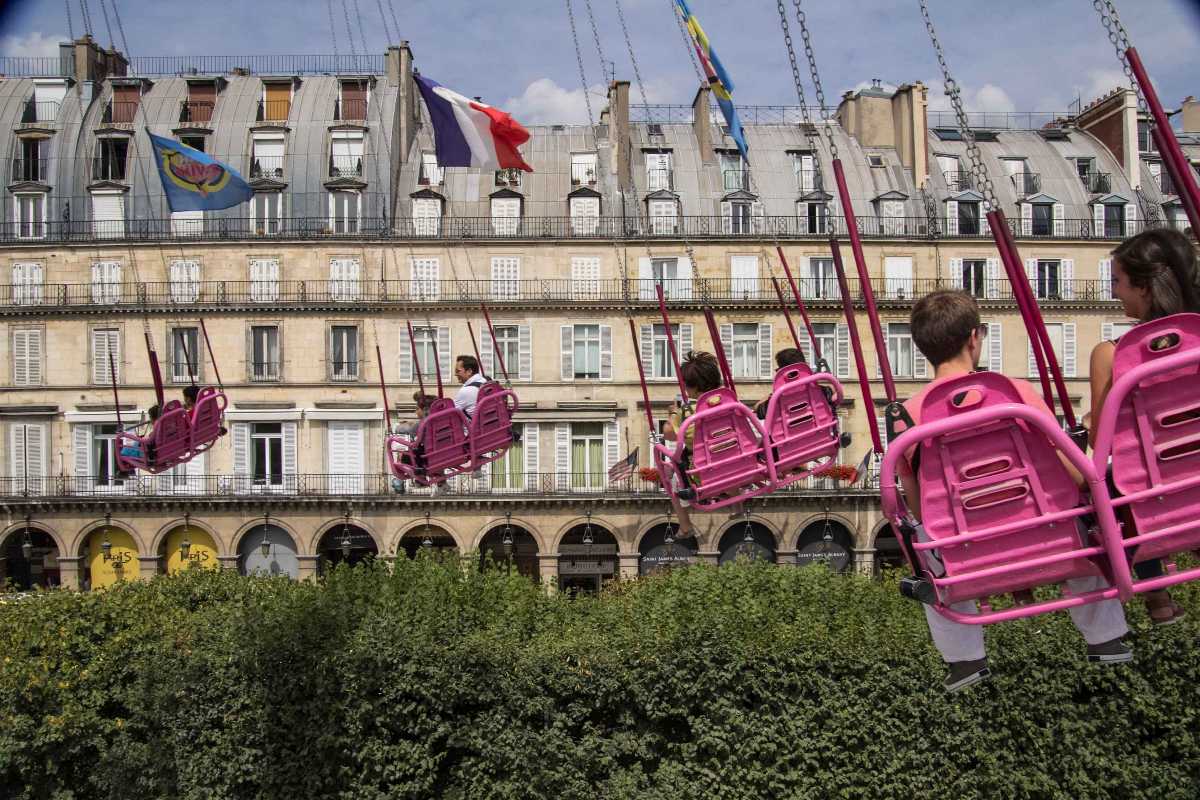
During summers, a traditional funfair is held at the Jardin des Tuileries. The funfair was created 20 years ago and ranks second when it comes to the largest Parisian funfairs. It is an extremely popular event among adults and children alike, who indulge together to enjoy over sixty attractions which include ghost trains, dashing cars, a merry-go-round and a shooting gallery. The most popular attractions within the fair are a giant slide and some trampolines. To complement these rides and attractions is the concert and jazz festival which sees its way into this fair annually. Entry into the fair is free, but rides are chargeable.
Opens: June to August
Timings: 11 AM - 11.45 PM / 11 AM - 12.45 AM on Fridays and Saturdays.
Jardin des Tuileries Architecture and Landscape
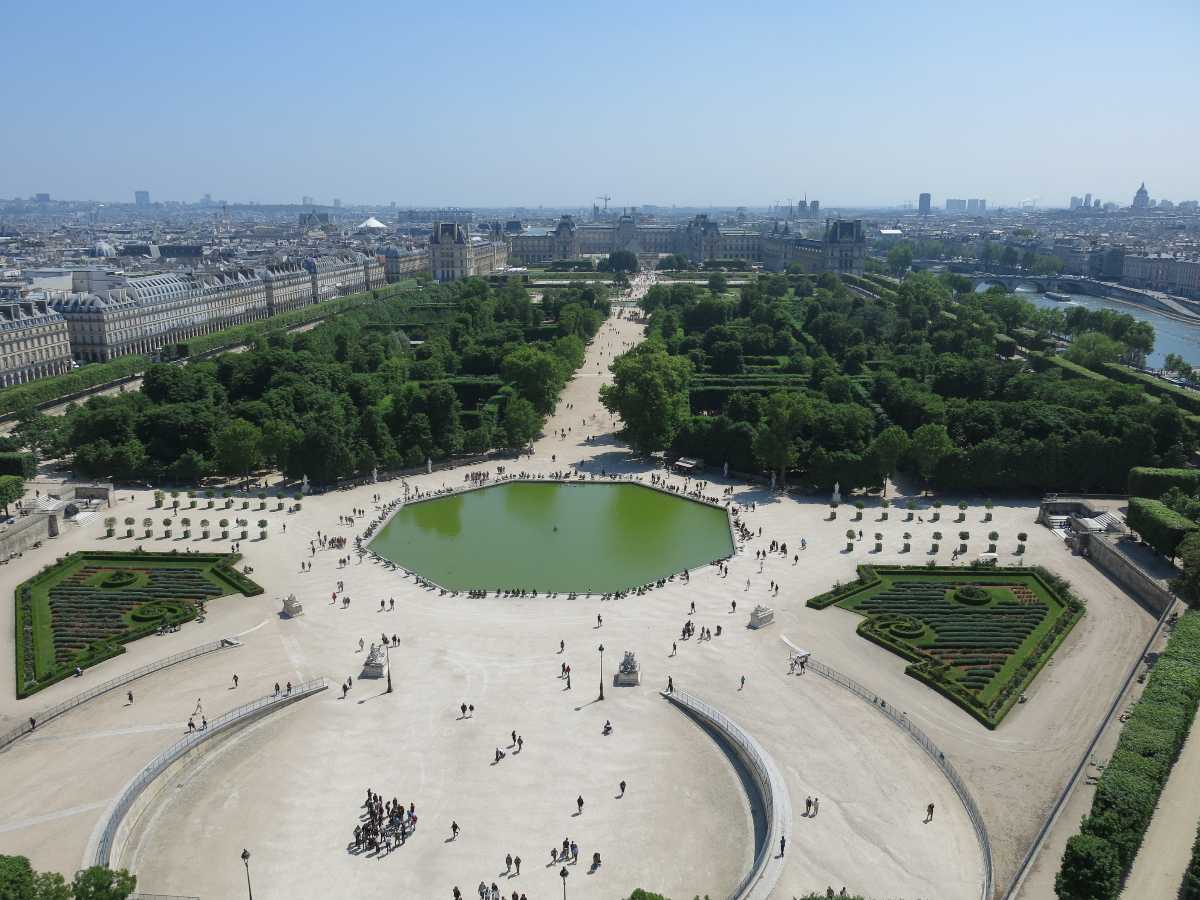
Tuileries Garden History and Development
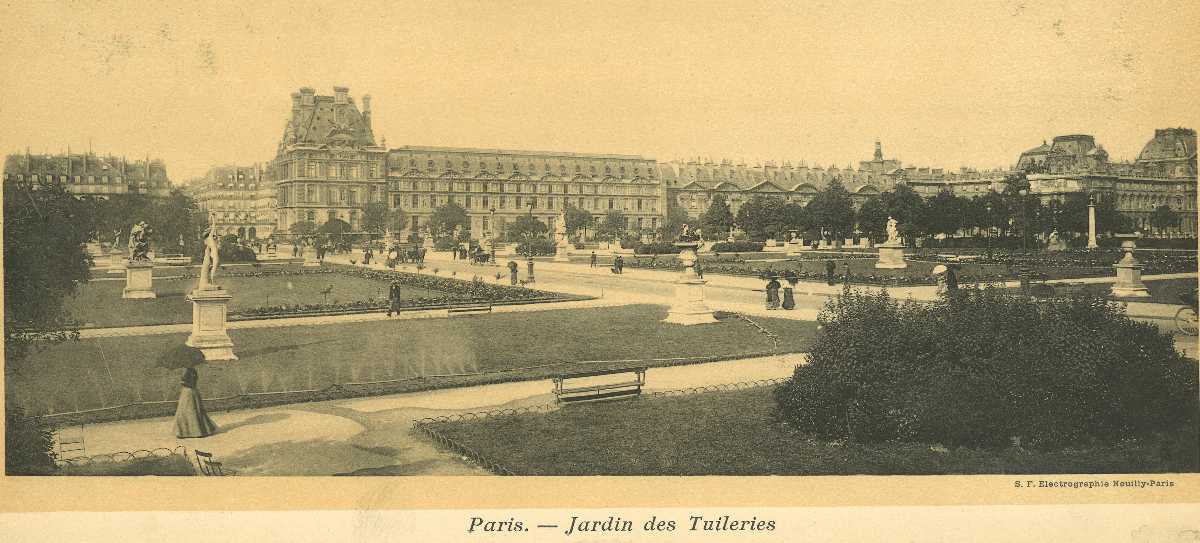
The creation of the garden dates back to the period of Henry II. After his death, his wife, Catherine de Medici moved out of her primary residence and shifted into the Louvre Palace. After some time, she commissioned the construction of a new palace not very far from the Louvre, for which, she ordered a famous landscape architect to create a garden of the Italian Renaissance style, which would have fountains, a labyrinth and grotto, decorated with faience images of plants and animals.
After the garden fell into the hands of Henry IV, he decided to introduce a few changes in the garden, initiated by the restoration of the garden. He built a rectangular lake with fountains supplied with water from the pump house La Samaritaine (on the Pont Neuf). Successively, the garden was passed on to Louis XIII after the death of his father, Henry IV. A riding school, stables and playing areas were established in his reign.Eventually, throughout the coming years, a lot of major changes were made to the Jardin des Tuileries whenever there was a new king that ruled France. The garden was redesigned, terraces were added, and new avenues were created with the help of hundreds of masons, gardeners and earth-movers. This garden was the first royal garden to be opened to the public.
In the 18th century, two statues were erected at the main entrance of the garden, followed by a few more figures that were set up at the Grand Alley. During the French Revolution, the palace was stormed by a mob and the King’s guards were massacred in the garden. The garden was then named the National Garden of the French Republic. In the 20th century, fencing events were held in the garden at the 1900 Summer Olympics.
Places of Interest in Jardin des Tuileries
1. Jardin du Carrousel
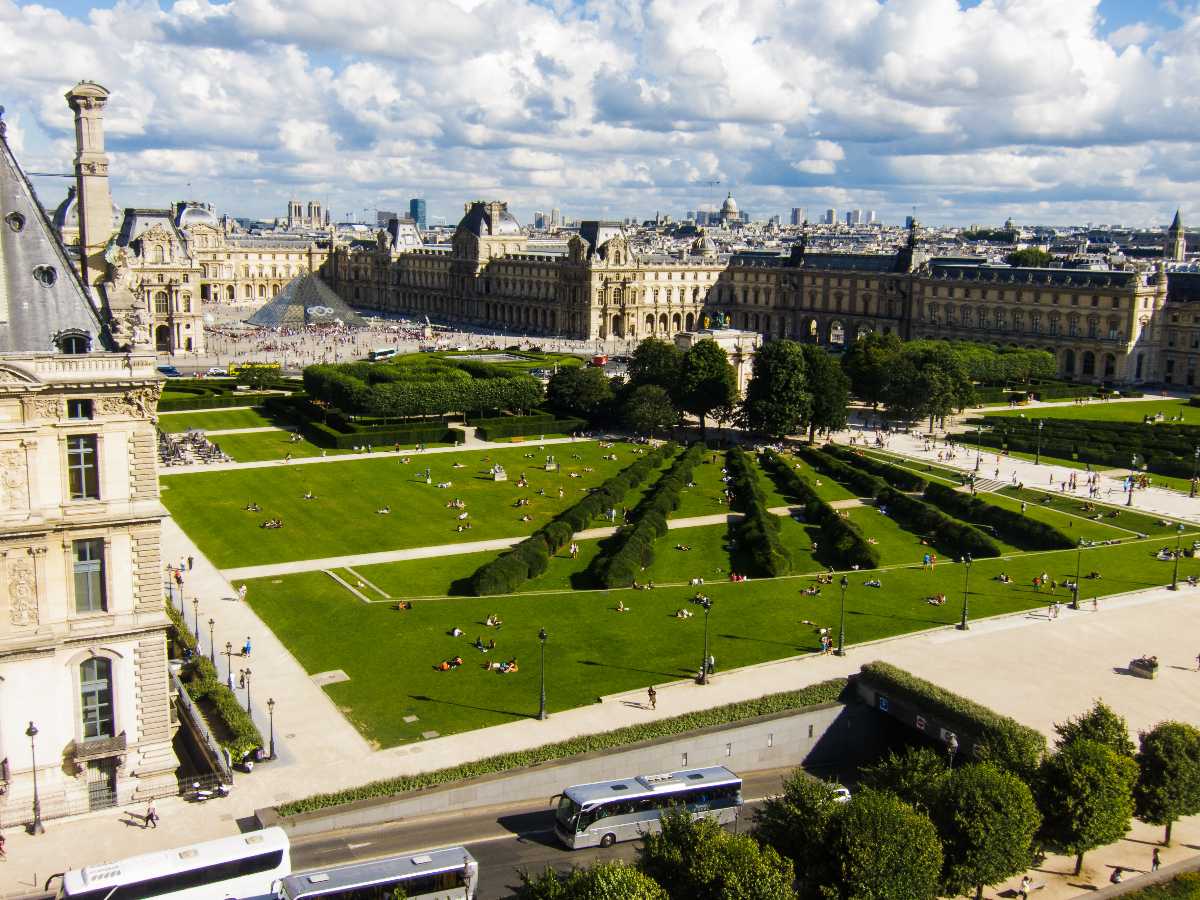
Jardin du Carrousel, surrounding the Arc de Triomphe, is a symbolic representation of Napoleon’s Victory at Austerlitz. The area is adorned by lush grounds and thick hedges along with strips of stone pavements emerging radially from the arc. Another defining feature of the carousel is the series of 18 statues created by Aristide Maillol in the late-18th century. Jacques Wirtz was the primary designer for designing the whole area. It is a relaxing and enjoyable place for people of all ages.
Timings: Open 24 hours
Price: Free; Official website at louvre
2. Musee de L’Orangerie
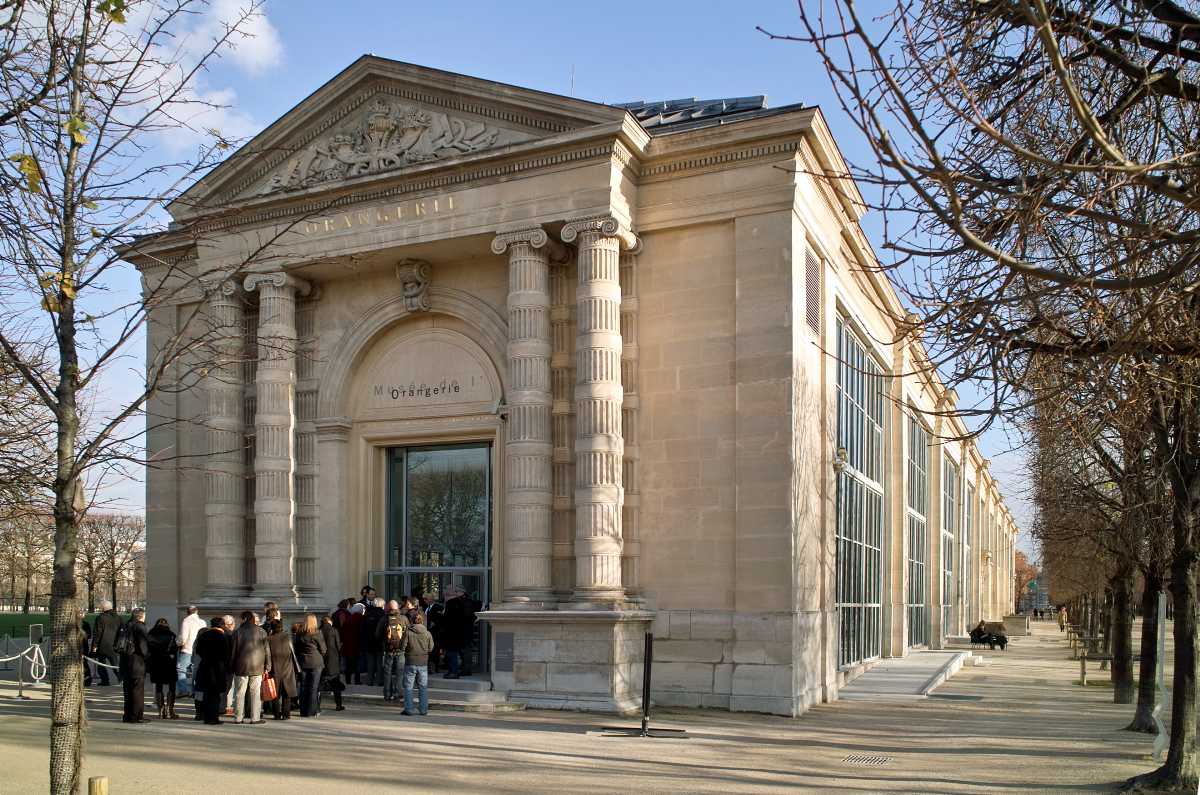
Located in an old orangey building in the Tuileries Garden, Musee de L’Orangerie is an art museum that is renowned for its mural collection of Water-lilies by the world famous artist Claude Monet. There are some artworks by painters like Picasso and Renoir too. Over the years, the building has had a lot of functions as well as purposes but is now only used as an art gallery and a protection mechanism for the orange and peach trees in the garden.
Timings: 9 AM - 6 PM
Price: EUR 9; Official website at musee-orangerie
3. La Terrasse de Pomone
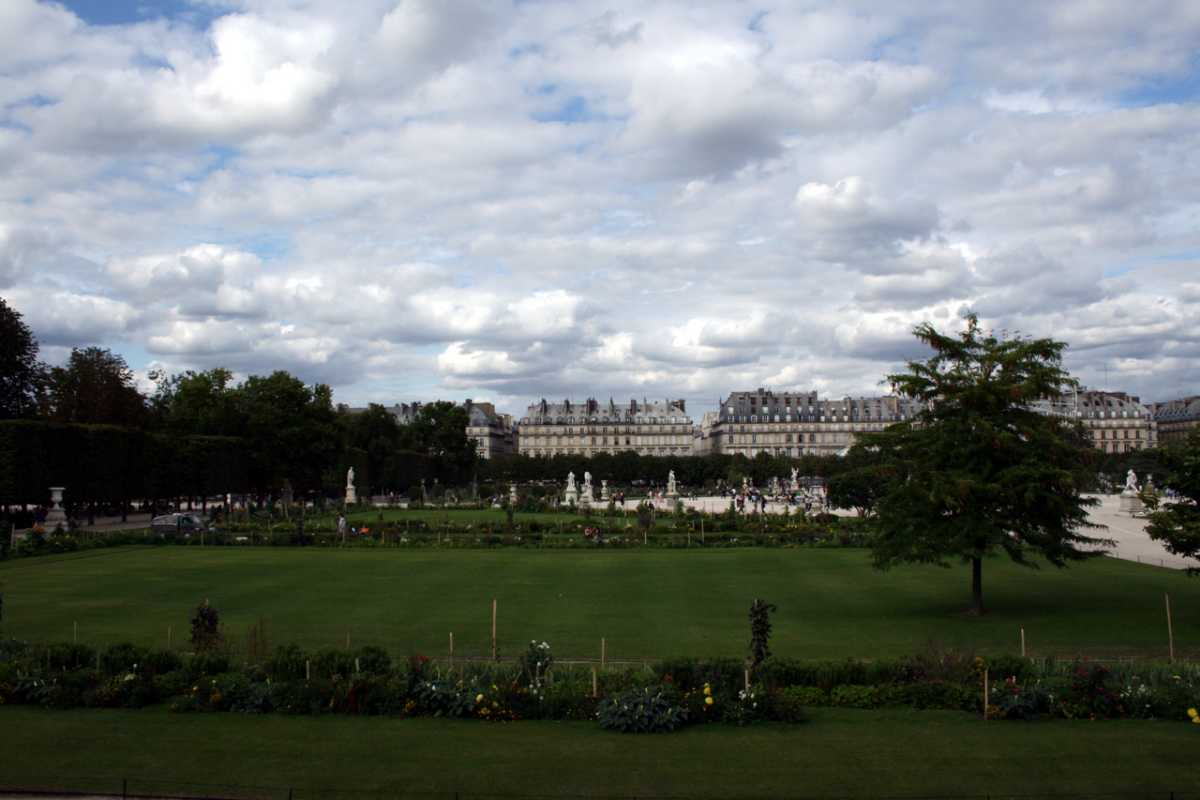
An essential feature of the Jardin des Tuileries is the elevated terrace with a fine restaurant, which is one of the primary elements that factor into the immense popularity of the garden. Along with fine wine and delicious food, it has impressive viewpoints such as those of Champs-Elysees Ave, the River Seine and Place de la Concorde, especially after dawn. The city of lights truly morphs into its radiance when viewed from the terrace.
Timings: 9 AM - 8 PM
Price: EUR 11 - EUR 20; Official website at terrassedepomone
4. Galerie Nationale du Jeu de Paume
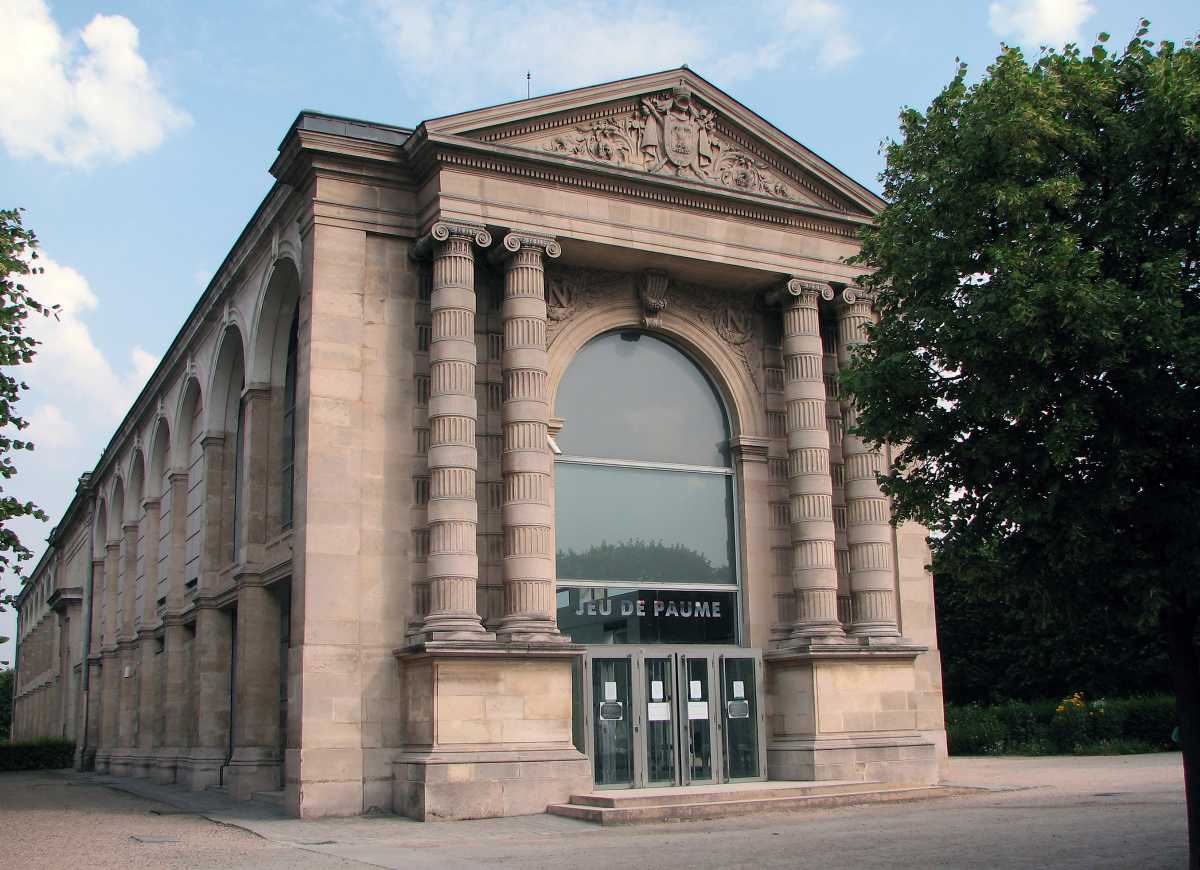
The Galerie Nationale de Jeu de Paume is an art gallery located in the Tuileries Gardens. It is mainly famous for being a centre of modern and postmodern media and photography. The building was constructed in the 19th century under the command of Napoleon III. Initially, it was used to house real tennis courts and eventually used as an extension for the Louvre and Musee de l’Orangerie. It achieved independent status in 1922. It showcases enormous collections of contemporary art by artists like Jean Dubuffet and Marcel Broodthaers.
Timings: 12 PM - 9 PM
Price: EUR 10 ; Official website at jeudepaume
5. Grand Carre
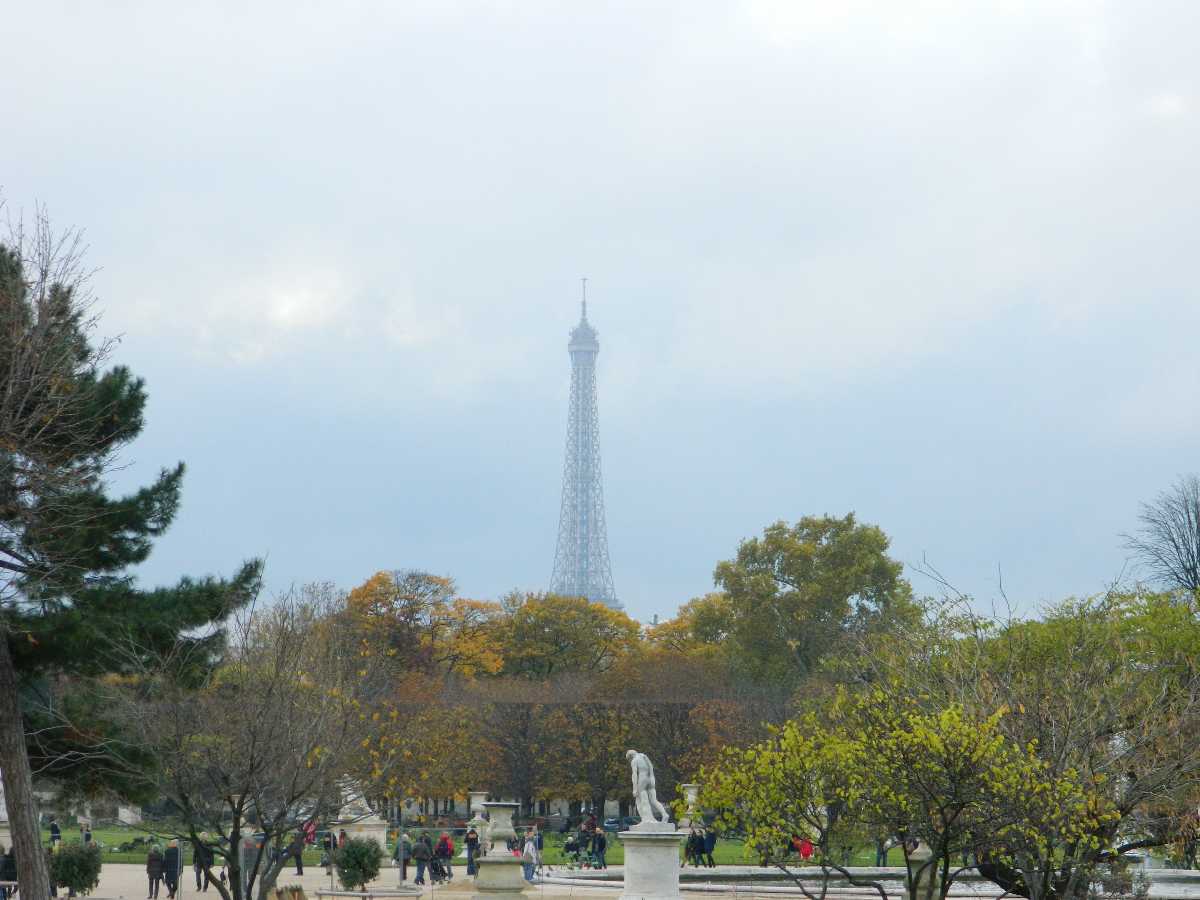
The area of Grand Carre is known for the two round ponds situated inside it. Around the two ponds, there are multiple, huge statues brought in the 19th century such as Misery by Jean Baptiste Hughes, Diana the Huntress by Leveque, Theseus Fighting the Minotaur and others; all of them mainly inspired by the Greek Pantheon. It was classified as a UNESCO World Heritage Site back in 1991. This public park was one of the firsts to have complete closed-circuit water distribution and recycling water for its basins. This park efficiently contributes to enhancing the beauty and nature of the Jardin des Tuileries.
Timings: 7 AM - 9 PM
Price: Free
6. Moat of Charles V

Beneath the Terrasse is the famous Moat of Charles V of France, located at the exit of the terrasse. It is a remnant of the old fortifications that used to surround the palace. Since the late-20th century, the moat has been ornamented with sculptures which were originally a part of the facade of the old Tuileries Palace.
Timings: 7 AM - 9 PM
Price: Free
7. Grand Couvert
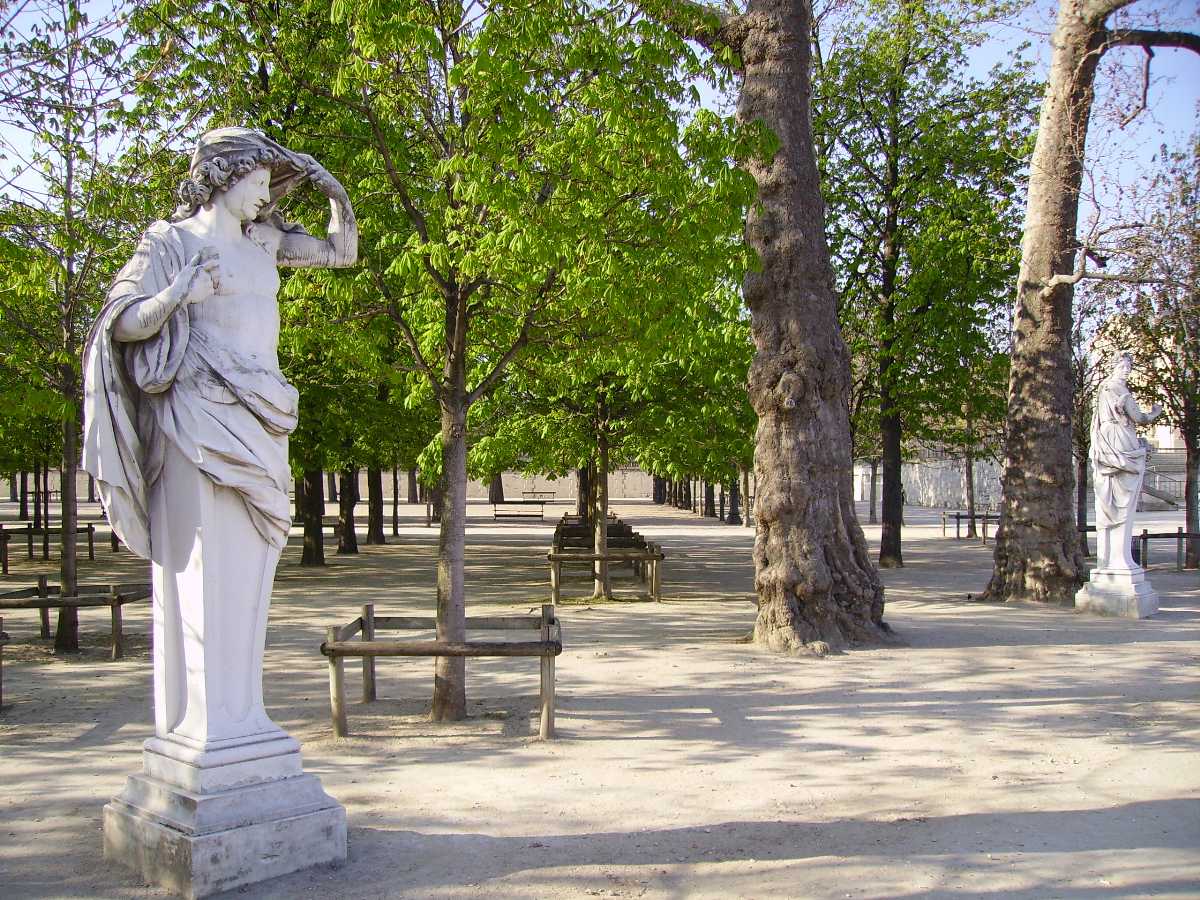
The Grand Couvert is the part of the Tuileries Garden which contains a lot of shrubs and trees. It was created for Catherine de Medici as her private garden in the mid-1500s. It has chairs and benches, along with some hidden areas that prove to be excellent places to sit, relax and eat. The whole area is filled with sculptures like Primo Piano II by David Smith, Confidence by Daniel Dezeuze and Jeanette by Paul Belmondo. People can often be seen performing exercises and yoga. The Grand Couvert is an exciting attraction within the Jardin des Tuileries.
Timings: 7 AM - 9 PM
Price: Free
Best Time to Visit Jardin des Tuileries
Timings for Jardin des Tuileries
-
Last Sunday of September until the last Sunday of March - 7:00 AM to 7:30 PM.
-
Last Sunday of March until the last Saturday of September - 7 AM to 9 PM.
-
In the months of June, July and August - 7 AM to 11 PM
How To Reach Jardin des Tuileries
Top Hotel Collections
Top Hotels Near Jardin des Tuileries
Jardin des Tuileries Reviews

Have a Question on Jardin des Tuileries?

experience.